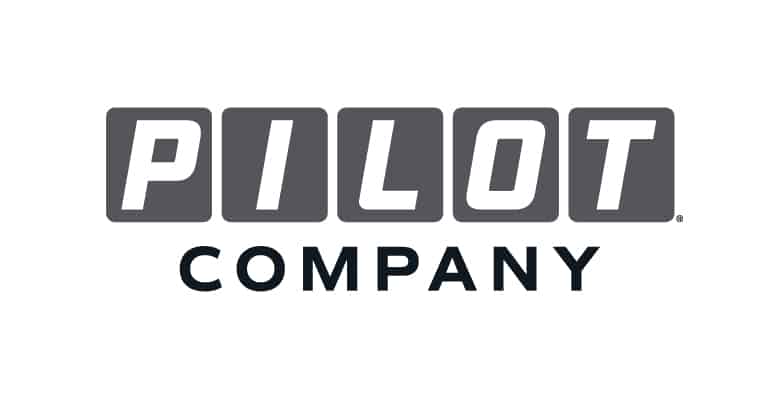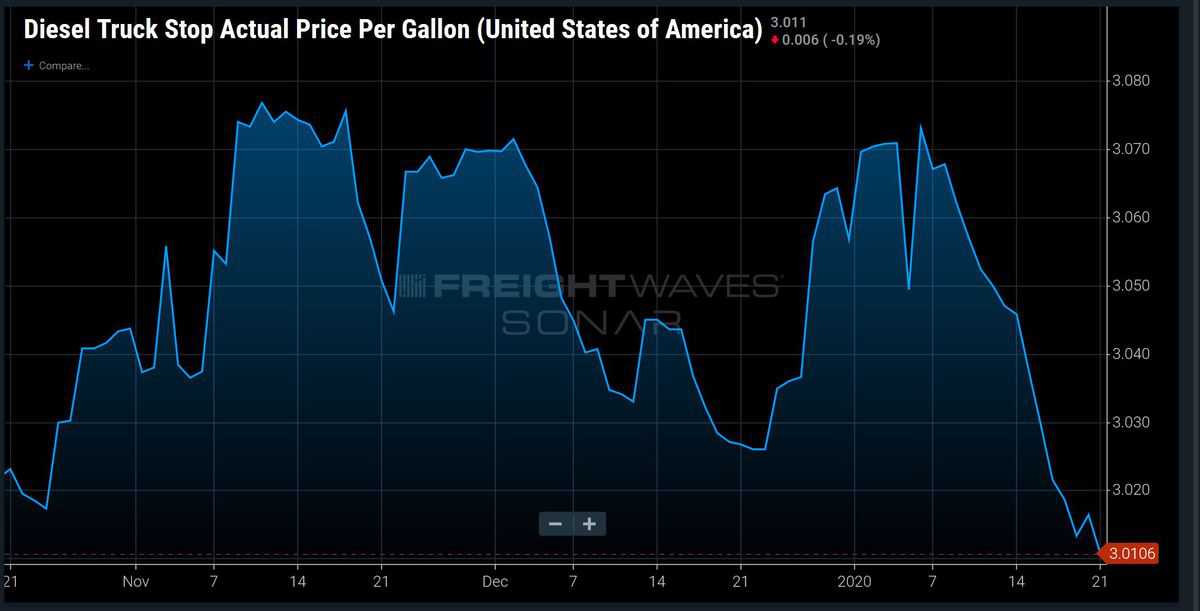Pilot Flying J is changing its corporate name to the Pilot Company, reflecting its expanding petroleum business and the reality of finite growth in new truck stops in the U.S. and Canada, the company said Thursday.
The Pilot Company is an umbrella for a retail group covering its industry-leading chain of approximately 1,000 travel centers, and its energy division, which includes 1,800 trucks that make up the nation’s third-largest tanker fleet. Every 18 seconds they deliver a load of some type of liquid to a truck stop or other location.

“It’s actually a way of organizing where we can explain to our 28,000 team members that this is what the company really looks like,” CEO Jimmy Haslam, the son of the company founder, said in an interview with FreightWaves.
Customers at the 750 Pilot and Flying J service plaza canopies won’t see anything different because both brands have strong equity with truckers and the traveling public. Pilot Company also has diesel marketing agreements with more than 200 additional stores.
Logo homage
Corporate initiatives branded with the logo reflect Pilot founder Jim Haslam’s first gas station in Virginia purchased for $6,000 in 1958. Pilot Company had $31 billion in revenue in 2019.
Pilot opened its first truck stop in 1981 and grew through mergers, acquisitions and organically before acquiring Flying J out of bankruptcy reorganization during the Great Recession in 2009. The two merged into Pilot Flying J in June 2010.
“We wanted a brand logo that took us back to the very beginning,” Jimmy Haslam said.
The homage also reflects a business reality.
“We couldn’t make money in just the travel center business, which is why in 2016 and 2017, the company began looking into the energy side of the business,” Haslam said.
“There’s a finite number of truck stops you can have in the U.S. and Canada,” he said. “The growth may be coming to an end.”
But Pilot is still committed to retail with plans to open 20 new stores and execute 30 new diesel marketing agreements this year.
“We think we can do that again in 2021 and 2022, and we’ll see after that,” Haslam said.
Petroleum focus
In 2017, Pilot Flying J hired Shameek Konar, a former Goldman Sachs commodities executive, as chief strategy officer. Later the same year, Pilot Flying J sold 39% of the company to Warren Buffett’s private equity giant Berkshire Hathaway for a reported $2.8 billion.
Konar, operating out of Houston, supervised the purchase of approximately 14 petroleum and related businesses in 2019, moving the company into oil field services and expanding the hauling of crude oil and water produced from fracking.
Over the last two years, Pilot Company has invested to build a comprehensive service model focused on supply, logistics, oilfield services and wholesale marketing.
“We see and look at opportunities every week,” Haslam said. “We do not expect the same kind of frenetic activity that we had in 2019.”
As a “super jobber,” Pilot Company also supplies more than 11 billion gallons of diesel, bio-diesel, diesel exhaust fluid (DEF) and gasoline through its retail chain and wholesale business annually. The average price for a gallon of diesel is reflected at SONAR DTS.USA.

Future state
The new corporate identity foreshadows the future when the Maggelet family, which owned Flying J, exits the business leaving the brand intact. Berkshire Hathaway will become the majority owner of Pilot in 2023 when it purchases an additional 41% of the company.
Other than giving consent, Berkshire had nothing to do with the name change, Haslam said.
“They totally leave you alone,” he said. “They are great partners with a reputation for being hands-off and allowing current management to run the company.”
After 2023, “this family will still have 20% of a pretty big company.”










